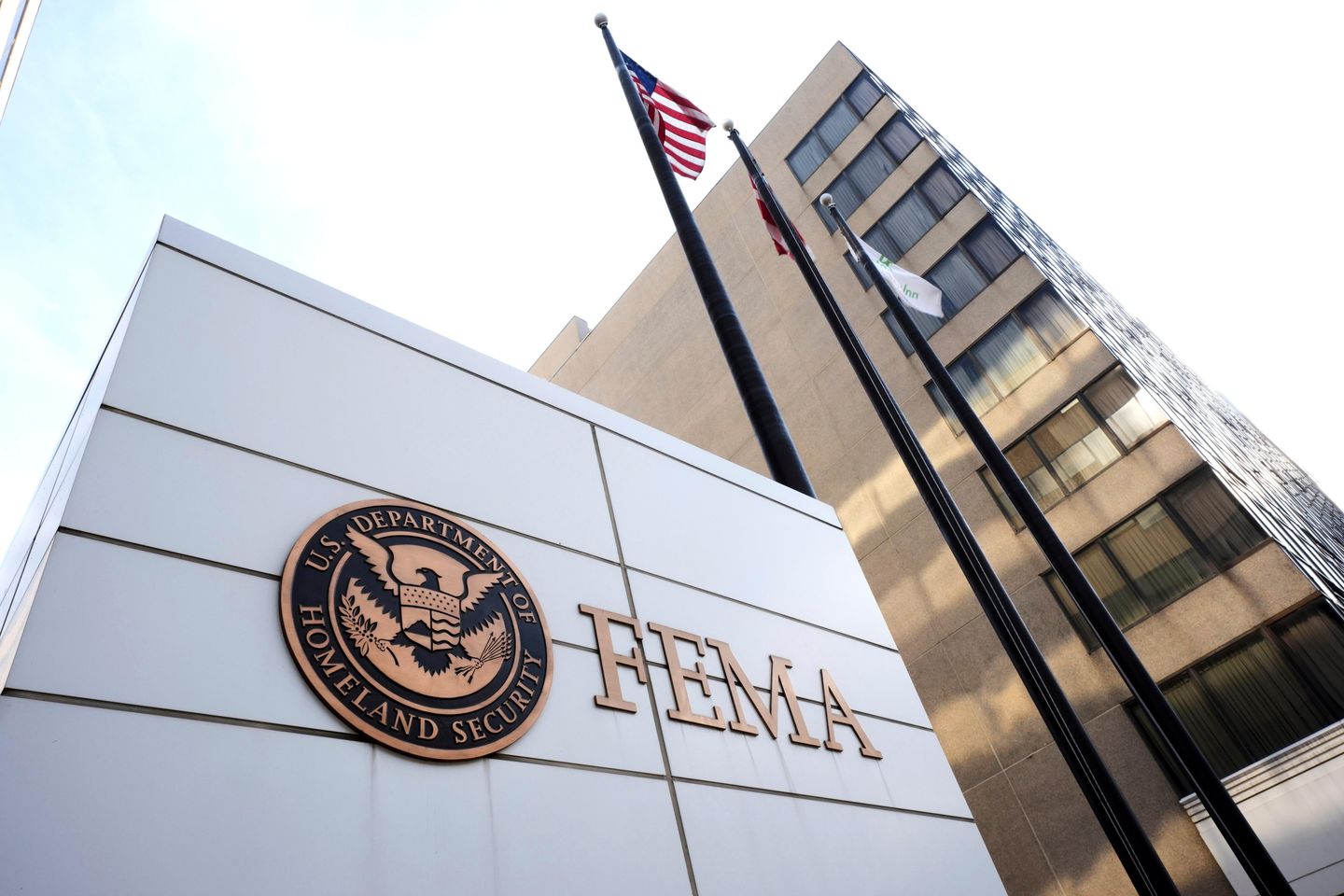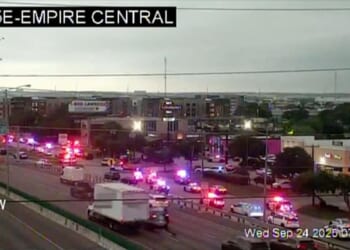
Political targeting at the government’s emergency management agency went deeper than Biden officials acknowledged, according to a new report that said FEMA employees not only skipped over pro-Trump homes but also avoided homes with pro-gun messages.
Indeed, the pro-gun avoidance was ever more prevalent than the Trump avoidance, Homeland Security’s Privacy Office concluded after an extensive review of Federal Emergency Management Agency files.
They found that FEMA employees and contractors canvassing neighborhoods in the wake of a disaster repeatedly noted homes’ gun, anti-Biden and pro-Trump signage — all of that in breach of the federal Privacy Act, the report said.
“It is impermissible for canvassers to collect First Amendment-protected information, yet some canvassers seemed to equate certain political positions with hostile or unsafe situations,” the report concluded.
In some of those cases, the canvassers then refused to make contact to offer assistance that the residents were entitled to under the law.
Eventually, someone else did visit the homes, but Secretary Kristi Noem said the initial targeting “should horrify every American, regardless of political persuasion.”
“For years, FEMA employees under the Biden administration intentionally delayed much-needed aid to Americans suffering from natural disasters on purely political grounds,” she said. “They deliberately avoided houses displaying support for President Trump and the Second Amendment, illegally collected and stored information about survivors’ political beliefs, and failed to report their malicious behavior.”
She referred the matter to the Justice Department to see if anyone should face charges, and she ordered changes at FEMA to prevent repeats.
The Privacy Office probe found that political targeting increased in election years. It recorded three instances of wrong collection of political information in 2021 and nine in 2023, but 22 in 2022 — a congressional election year — and 68 instances last year, amid the crush of the presidential election.
That works out to 102 potential violations over that time.
Pro-Trump messages were actually a relatively small portion, with just 15% of cases.
More than 80%, meanwhile, involved pro-gun or firearms messages.
House Oversight and Accountability Chairman James Comer, who had led a probe into the political targeting, called the report “explosive.”
“This blatant political bias has no place in disaster relief — period,” the Kentucky Republican said.
He said FEMA earlier this year said it had fired some employees who failed to provide oversight to stop the targeting. But Mr. Comer said that’s not enough.
“FEMA must hold every responsible party accountable for enabling a culture that allowed political discrimination to thrive under the Biden administration,” he said.
The issue of political targeting reared last fall after Hurricane Milton slammed into the southeastern U.S. and FEMA canvassers deployed to go door-to-door and provide information on what federal assistance was available.
A whistleblower on one of the teams reported that their team lead, Marn’i Washington, instructed them to avoid homes with Donald Trump campaign signs.
Then-FEMA Director Deanne Criswell told Congress at the time that it was an isolated incident and wasn’t a result of agency policies.
But the Homeland Security Privacy Office said it found instances dating back to at least 2021, when Hurricane Ida hit Louisiana. One FEMA staffer recorded in agency records an encounter with a home that had a “Trump country” sign.
Even recording that data is known as “spillage” and it’s a violation of the Privacy Act, Homeland Security said, because it relates to activities protected under the First Amendment.
But it went further, the Privacy Office said.
FEMA canvassers then “bypassed homes” specifically based on those notations, the investigators said.
FEMA should have been flagging those spillage violations. But investigators looked through dozens of instances where protected First Amendment activity was noted in FEMA files, and found none of them were properly reported as violations.
Ms. Washington was booted soon after she was named by the whistleblower. She was later the subject of a complaint by the Office of Special Counsel, which said her political targeting violated the Hatch Act.
“Avoid homes advertising Trump,” Ms. Washington told her team in a chat message. At least five of her team members then followed her directive and skipped over homes with Trump campaign signs, OSC found, even though there were no actual safety concerns with Trump homes in that area.
Ms. Washington, after her ouster last year, said she was “being framed.”
“I was simply following orders,” she said.
Privacy Office investigators said they didn’t find any directives from agency leaders that sparked the political transgressions, but said there also wasn’t any guidance to prevent it.











